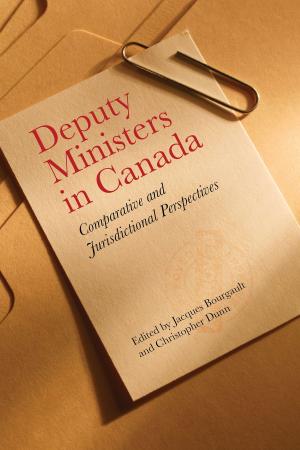Imperial Republics
Revolution, War and Territorial Expansion from the English Civil War to the French Revolution
Nonfiction, History, Civilization, Religion & Spirituality, Philosophy, Political, Social & Cultural Studies, Political Science, Politics, History & Theory| Author: | Edward Andrew | ISBN: | 9781442695870 |
| Publisher: | University of Toronto Press, Scholarly Publishing Division | Publication: | August 20, 2011 |
| Imprint: | Language: | English |
| Author: | Edward Andrew |
| ISBN: | 9781442695870 |
| Publisher: | University of Toronto Press, Scholarly Publishing Division |
| Publication: | August 20, 2011 |
| Imprint: | |
| Language: | English |
Republicanism and imperialism are typically understood to be located at opposite ends of the political spectrum. In Imperial Republics, Edward G. Andrew challenges the supposed incompatibility of these theories with regard to seventeenth- and eighteenth-century revolutions in England, the United States, and France.
Many scholars have noted the influence of the Roman state on the ideology of republican revolutionaries, especially in the model it provided for transforming subordinate subjects into autonomous citizens. Andrew finds an equally important parallel between Rome's expansionary dynamic — in contrast to that of Athens, Sparta, or Carthage — and the imperial rivalries that emerged between the United States, France, and England in the age of revolutions. Imperial Republics is a sophisticated, wide-ranging examination of the intellectual origins of republican movements, and explains why revolutionaries felt the need to 'don the toga' in laying the foundation for their own uprisings.
Republicanism and imperialism are typically understood to be located at opposite ends of the political spectrum. In Imperial Republics, Edward G. Andrew challenges the supposed incompatibility of these theories with regard to seventeenth- and eighteenth-century revolutions in England, the United States, and France.
Many scholars have noted the influence of the Roman state on the ideology of republican revolutionaries, especially in the model it provided for transforming subordinate subjects into autonomous citizens. Andrew finds an equally important parallel between Rome's expansionary dynamic — in contrast to that of Athens, Sparta, or Carthage — and the imperial rivalries that emerged between the United States, France, and England in the age of revolutions. Imperial Republics is a sophisticated, wide-ranging examination of the intellectual origins of republican movements, and explains why revolutionaries felt the need to 'don the toga' in laying the foundation for their own uprisings.















